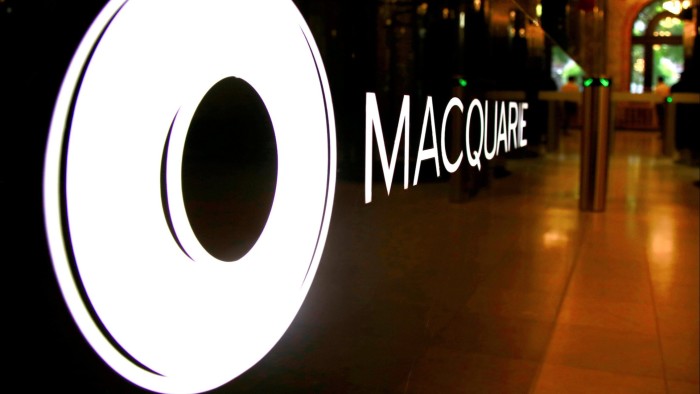Unlock the Editor’s Digest for free
Roula Khalaf, Editor of the FT, selects her favourite stories in this weekly newsletter.
Asia-Pacific infrastructure should drive more deals in 2025 despite economic challenges for the region, Macquarie said after the Australian asset manager wrapped up a A$24bn (US$15bn) data centre sale.
Ani Satchcroft, co-head of Macquarie’s infrastructure division in Asia-Pacific, said the region would offer opportunities even with the impact of a weak Chinese economy and geopolitical instability hitting growth.
Macquarie, one of the most active global investors in infrastructure investment, this month completed the sale of Australia’s AirTrunk to Blackstone in its biggest deal of 2024. It bought the company for A$3bn five years ago.
AirTrunk has since expanded into markets including Japan, Hong Kong and Malaysia.
Some of the world’s biggest tech groups are also stepping up investment in data centres in the region as demand grows for services based on artificial intelligence.
Macquarie is the biggest private sector owner of infrastructure assets in the UK but has attracted scrutiny, notably in the water sector, after it attracted criticism for almost trebling Thames Water’s debt after buying a stake in the business in 2006.
The water company has since struggled with its debt and has been the subject of proposals this month to repair its finances including emergency loans, a break up or a nationalisation.
Macquarie, which sold its last stake in the water company in 2017, has defended its record, saying it invested billions in the utility. It re-entered the British water sector when it acquired Southern Water in 2021.
In Asia-Pacific it has focused more of its investment in areas including digital infrastructure and renewable energy projects.
Macquarie had a mixed year as it missed profit expectations after it struggled to exit investments due to weak market conditions. It told investors in November that it expected deal flow to pick up in 2025.
Satchcroft said Japan remained an attractive investment destination after Macquarie invested in telecoms company Rakuten’s mobile towers in August. “The challenge there is the ability to deploy and scale investments,” she said.
She said the asset manager also expected to continue to deploy capital in South Korea, where it acquired the Hanam data centre business in August, despite the country’s recent political upheaval including the impeachment of the president.
Satchcroft said Australian infrastructure was in a “pretty good spot” to invest and said more public sector assets could soon come on to the market as state and the federal government deal with high levels of debt.
Macquarie has taken a broader view of the definition of “infrastructure” in recent years, pushing into markets including energy, telecoms and data centres.
Satchcroft pointed to Macquarie’s involvement in an A$8bn deal in 2022 to take over the running of vehicle registration services in the state of Victoria. She said the number plate registry had the hallmarks of an infrastructure-style asset, as an essential service with stable cash flows that needed private capital to upgrade it.
She said she would expect other Australian state governments to consider similar deals.
“Something that the Australian state governments have done really well is [to] think outside the box in terms of what assets can be commercialised,” she said.
Read the full article here

